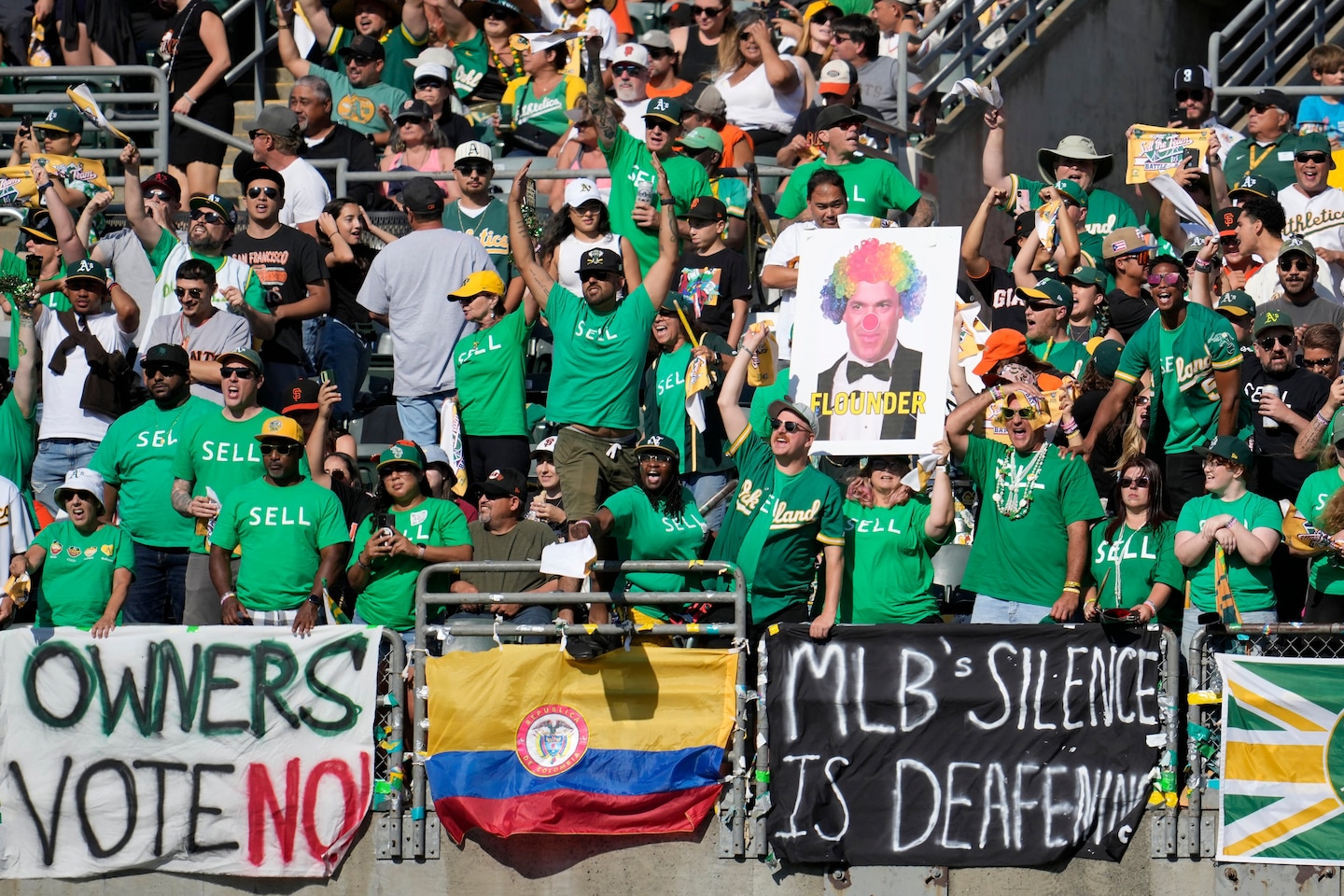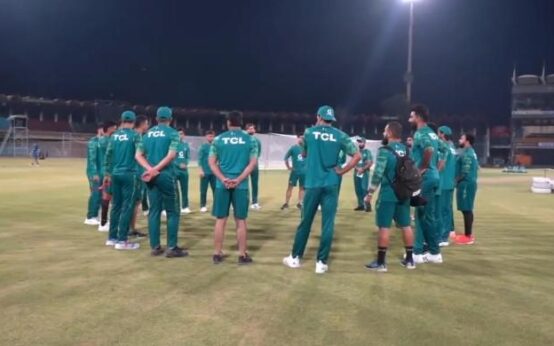Seconds after he said it, Manfred seemed to realize he had been sterner than usual toward the Athletics ownership group he has defended through its oft-ridiculed, disorganized years-long relocation process. He broke into a quick smile and clarified.
“Disappointed just in the sense that I think it’s best for the A’s,” he said. “And best for the game.”
What is best for the A’s, and by extension the game, has been a subject of public debate throughout the ownership tenure of John Fisher and his years-long search for a new stadium. But it is clear that what is happening now, as the Athletics enter their last guaranteed season at the Oakland Coliseum with no plan for where they might play in 2025 and no firm plans for a stadium in Las Vegas, is not good for the Athletics or the game.
For example, as Fisher and team president Dave Kaval joined other owners this week, news broke that a Nevada teachers’ union sued the state and its governor to stop a bill that provides the Athletics with the $380 million in public funding they need to help build a stadium. Not long after that, Las Vegas Mayor Carolyn Goodman — who, as the A’s and MLB want made clear, does not have jurisdiction over the Clark County-governed Strip where they want the stadium — told a Front Office Sports podcast she thinks the A’s “have got to figure out a way to stay in Oakland,” expressed concerns that the team does not have the funding it needs for a stadium in her city, and wondered why it picked a small site with lots of congestion rather than one she and other locals suggested.
Shortly after that, Goodman issued a statement clarifying that she is, in fact, “excited about the prospect of Major League Baseball in Las Vegas, and it very well may be that the Las Vegas A’s will become a reality that we will welcome to our city.”
Fisher declined to comment. But minutes after the meetings opened Wednesday, Kaval found himself chatting with a few owners in a hotel lobby, answering questions about how things were going with cheerful updates about the state of a move. He told them about the lawsuit but explained that the Athletics are optimistic it would not slow them down. He joked with about the mayor’s comments but explained that she has no jurisdiction. He admitted they do not know where they are going to play their home games after this year but that they had a call in a few hours with television rights holders that would probably help figure that out. No one, particularly the gregarious Kaval, seemed that worried about any of it at all.
Perhaps they know best. Perhaps they should be a little more concerned. None of the owners who approved the move, nor those making it, have ever owned a team entering its last Opening Day in one city not knowing where it will play its next. MLB has never navigated a year quite like this either, one in which their template for next year’s schedule includes sites that remain “TBD,” though league officials say it’s no big deal.
“It’ll be somewhere in the West,” Manfred said Thursday, before refusing to say which cities were still in contention. Multiple people familiar with the A’s thinking said Sacramento and Salt Lake City are among the contenders, and Manfred said Fisher’s group is trying to determine where the revenue streams will be largest.
And none of those owners knows how the lawsuit to block the stadium funding will turn out, though an earlier lawsuit trying to block the funds has already failed. Fisher, who has consistently said he can’t afford to put a winning team on the field in Oakland, is supposed to put $1 billion of his own into the stadium project. The site on which he plans to build that stadium, the one Manfred hopes is ready to go roughly 50 months from now, currently has a hotel on it. No team has relocated since the Nationals moved to Washington in 2005. And no team in recent memory has cut the pursuit of a new stadium quite this close, nor received a reception quite this tepid in its new city, while fostering such fury in the home they are leaving behind.
Fisher has long insisted the city of Oakland, despite providing multiple viable sites and promises of support over the years, did not provide enough public funding or fan support to keep the A’s. Oakland’s fans and municipalities, which watched Fisher let every homegrown star his organization produced walk away amid claims he could not afford them, has long insisted he did not make a credible effort to earn their support — though, they believe, they gave it anyway.
But MLB owners knew about those red flags when they approved the move last year. And Manfred has regularly, dutifully, dismissed criticisms of Fisher as unfair and suggested the city just never provided what he needed to succeed.
So it was noteworthy Thursday when he deviated, even for a moment, from the no-worries, be-happy script. And even more noteworthy when he brought up, of his own accord, when asked about the far more functional process by which the Rays are securing their new stadium in St. Petersburg.
“It kind of echoes the questions in Oakland. We’re at the point now where it needs to go,” Manfred said. “You know, it takes a long time to build a stadium.”


 Best Underground Water Leak Detection Equipment 2024
Best Underground Water Leak Detection Equipment 2024  Best Backyard Ideas: Turn Your Outdoor Area Into a Creative and Calm Haven
Best Backyard Ideas: Turn Your Outdoor Area Into a Creative and Calm Haven  Babar, Rizwan are good players but not whole team, says Mohammad Hafeez
Babar, Rizwan are good players but not whole team, says Mohammad Hafeez  Pak vs NZ: Green Shirts aim to bounce back against Kiwis today
Pak vs NZ: Green Shirts aim to bounce back against Kiwis today